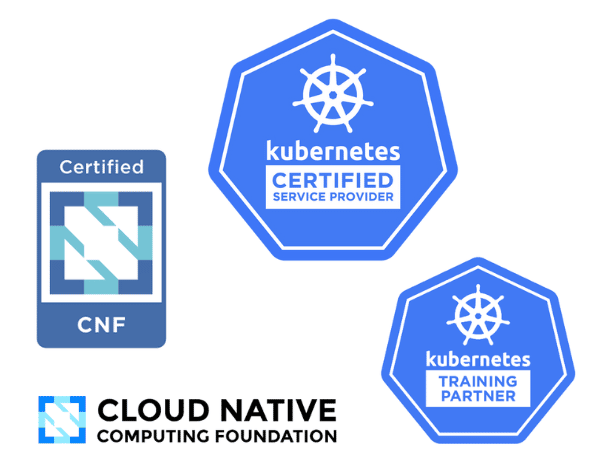
At SoKube we master the use and management of container orchestration systems based on Kubernetes and its ecosystem.
Beyond knowledge of Kubernetes concepts and features, as well as common tools and practices used to deploy, manage, and monitor applications in a Kubernetes environment, our consultants master the architectural, security, operational aspects and assistance in the exploitation of this technology.
Our Kubernetes experts are able to work in different contexts, such as companies using Kubernetes to manage their applications, cloud service providers offering Kubernetes solutions, or software publishers offering tools to manage Kubernetes clusters.

Certified “Kubernetes Certified Service Provider” (KCSP) and “Silver Member” of the Cloud Native Computing Foundation (CNCF), the foundation that hosts Kubernetes and its ecosystem, we bring you our expertise and experience in setting up projects around Kubernetes.
In addition, our “Kubernetes Training Partner” (KTP) certification also allows us to deliver official training on Kubernetes.

Our Sokube experts will help you answer your questions by supporting you in your projects to build the best infrastructure according to your context, the existing one, your needs and your maturity.
